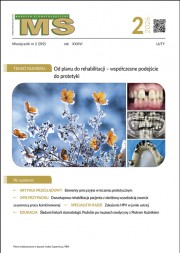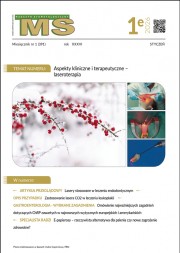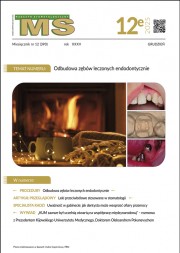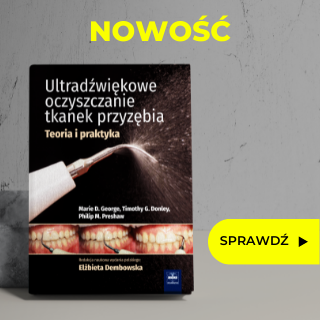
Read the text carefully. Pay attention to words in the bold print
Adolescents face many oral health problems which may require them to visit a dentist on regular basis. Irregular teeth growth is a common problem and adolescents with braces are a common sight. Another problem is wisdom teeth extraction or the removal of the third molar. Dental cavities are yet another common problem in adolescents.
Orthodontics will deal with correction, development and prevention of irregular teeth, jaw and bite. Orthodontics also helps to correct jaw disorders and facialabnormalities. To get braces or any other orthodontic treatments, the best age is ten to fourteen years. But regardless of the age, the same physical and biological process is used in correcting and moving the teeth alignments.
When adolescents wear braces they have to take certain precautions in order to avoid any more oral health complications. The most important precautionary measure is to brush the teeth regularly after every meal. Since the food can be easilylodged in braces, it is a good idea to brush carefully with soft bristles toothbrush and fluoride toothpaste. In the morning, the adolescent must floss between the braces and teeth. Foods which are sticky or hard must be avoided as they are very difficult to remove. Cleaning must be done by the orthodontist or general dentist, every five to six months.
The wisdom teeth or third molars can grow in people of the age fifteen to twenty five. These teeth cause problem, because most of the mouths are too small to adjust new teeth and hence they need to be removed. If the wisdom tooth has place to grow, without affecting other teeth, they can be left to themselves. But if the adolescent experiences pain, facial swelling, mouth infection and gum-line swelling, then they should be extracted immediately. They can also destroy the second molars and impact other tooth. Various gum and jaw diseases can be caused. There can be a tumor development; cysts development and plaque build up. Therefore, a surgery is performed to remove the tooth or teeth.
Five times common than asthma is tooth cavities. The tooth below the gum-linecomprise of nerves, roots and dentin. Dentin is another type of tissue and isn’t as hard as the enamel. The acid which leads to tooth decay is produced by bacteria. These acids, along with dietary sugar, attach the enamel and eat away the minerals within the enamel, until a cavity is formed. The biggest prevention against dental cavities is brushing teeth twice a day and even better, after every meal with fluoride toothpaste and soft bristle toothbrush. Carbonated drinks must be avoidedstrictly and must be replaced with fruit juices and sugary food must be avoided. Intake of fluoridated water also helps a lot or fluoride supplements can be used as replacement.
Another bothersome condition is periodontal disease. It is series of serious infections caused by bacteria that harm the gums and tissues in the vicinity of the mouth. While dental cavities or caries only affects the tooth periodontal disease isdevastating, affecting the bones that surround the tooth, gums, coverings of teeth root and tooth membrane.
The disease should not be taken lightly and if it’s left untreated it can spread and affect the bones under the teeth which would eventually dissolve and would not longer support the teeth in its place. According to statistics plaque buildup is the main cause of gum related diseases. The other possible causes of periodontal disease include: genetics, unkempt oral hygiene, food getting stuck to frequently in the gums, mouth breathing, low nutrient diet or vitamin c deficient diet, smoking, diabetes, autoimmune/systemic disease, changes in hormone levels, certain medications and constantly teeth grinding.
There are various treatments available for periodontal disease which is decided by the dentist depending on teenager’s age, medical history and health in general. The method of treatment also depends on the extent to which disease has reached. The tolerance of the teenager to certain medicines, therapies and procedures are also taken into consideration. The treatment usually involves plaque removal, medication and in worse cases a surgery.
GLOSSARY
abnormalities – nieprawidłowości, zaburzenia
according to – według
attach – dołączyć, przytwierdzić
be a common sight – często widziany (tutaj w gabinecie)
bothersome – kłopotliwy
braces – aparat ortodontyczny
bristles – włosie
carbonated drinks – napoje gazowane
certain – pewien, pewny
comprise of – składać się z
constantly – ciągle
dissolve – rozpuścić się
devastating – niszczycielski, druzgocący
eat away – pochłonąć
extent – zasięg, rozmiar
genetics – uwarunkowania genetyczne
grinding – zgrzytanie zębami
gum-line – linia dziąseł
hence – zatem, dlatego
lodged – zaklinowany
membrane – membrane, błona
on regular basis – regularnie
precaution – środek ostrożności
regardless – bez względu na
require – wymagać, potrzebować
sticky – lepki
strictly – dokładnie, ściśle
take lightly – lekceważyć
take into consideration – rozważyć
therefore – dlatego też
tumor – guz, nowotwór
vicinity– sąsiedztwo, bliskość
Change the underlined words with words from the GLOSSARY section
1. It’s common to refer a teen to an orthodontist if he experiences some biteirregularities.
2. Fizzy drinks are always the source of dental problems in teens.
3. No matter if you have a toothache or not, you must see your dentist regularly.
4. The dentist had to perform a thorough examination to determine the degree of periodontal disease.
5. All patients require dental visits.
6. The tooth above the gum-line is made up of enamel.
7. Some patients are at higher risk of periodontal disease.
8. Although following doctors orders may seem to be problematic, the patients must comply with the recommendations.
9. Bruxism predisposes patients to some serious dental problems.
10. There are some cautions to be taken while brushing teeth which have the braces on.
Match teenager’s questions with dentists answers
A. “How many months of bulimia until tooth decay?” After 6 months of bulimia will I have tooth decay? Is there a legal obligation to tell my parents I’m bulimic?”
B. “If I brush and floss, do I floss before or after I brush?”
C. “At the age of 14 I had an X-Ray where my bottom wisdom teeth were clearly visible under the gum line. However, now 16, I have been told by my orthodontist that I’m not going to get wisdom teeth. Will the wisdom teeth definitely come through?”
D. “How young is too young for teeth whitening?”
1. I always advise that it is better to floss first. You can pull out all the debris and then brush it away afterwards. I’m not sure if there are studies which show that people’s oral health improves if flossing is done first. The important thing is that flossing should be carried out once a day, just find a convenient time to do it.
2. Some guidelines say that anyone under the age of 14 shouldn’t have bleaching treatment.
3. Your condition involves regurgitating acid into the mouth – a harmful action which initially causes acid erosion rather than decay. The effect of this is rather like acid rain falling on rock; it damages the surface. In a tooth’s case this is the enamel. Damaged surface enamel can make tooth decay more likely and cause painful tooth sensitivity too. The dentist should be able to see the results of bulimia. If a patient is below the age of 16, then parents do have a right to know about matters like this.
4. It’s very rare that you can safely predict that wisdom teeth won’t emerge and need attention. There is always potential for wisdom teeth to emerge, apart from in rare cases where the wisdom teeth are ‘buried’ deep in the jawbone, far away from the mouth.
Complete the lifestyle advice for a teenager with proper words:
| starches | snack foods | infections |
| groups | crack |
acids |
Nutrition plays a very important part in your dental health. The sugars and starches in many 1._____________ contribute to formation of plaque. Limit the number of snacks you eat and drink — each time you consume foods and drinks that contain sugars or 2._______________, your teeth are attacked by 3. ______________ for 20 minutes or more. Eating a well-balanced diet from the five food 4._______________ can make a big difference in your dental health. Despite its popularity, oral piercing can cause complications such as 5.________________
infections, uncontrollable bleeding and nerve damage. The metal jewelry can also chip or
6. ______________ teeth and damage your gums. If you're considering oral piercing, let your dentist know; he or she can help you make the safest choices.
![]() Lesson 25 answers
Lesson 25 answers













